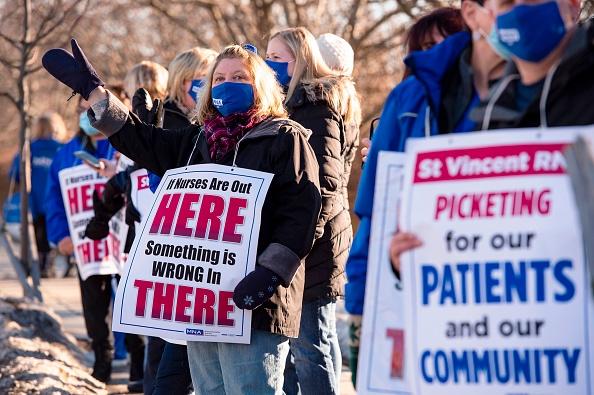About 15,000 union nurses at 15 hospitals across seven different health systems in Minnesota have walked off the job, protesting understaffing and overwork in what’s believed to be the biggest strike of private-sector nurses in U.S. history.
The Minnesota Nurses Association strike, slated to last three days, began at 7 a.m. on Sept. 12. The group’s membership voted last month to authorize a strike.





